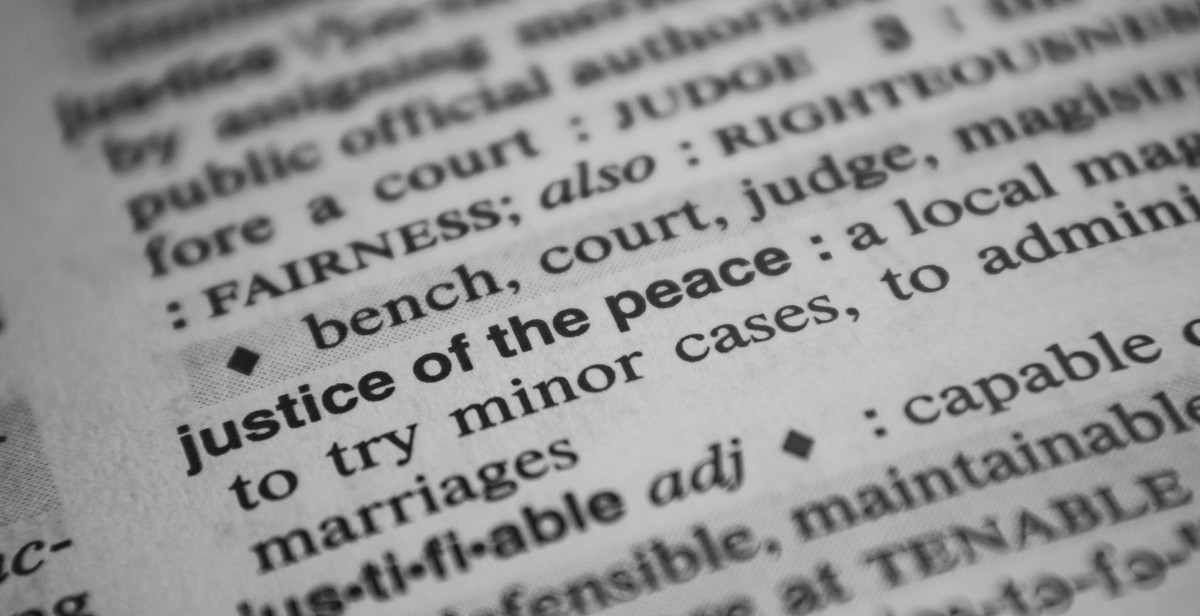Why We Procrastinate: A Deep Dive into the Psychology of Delay
Procrastination is a common phenomenon that affects almost everyone at some point in their lives. It is the act of delaying or postponing a task or decision, often to the point of discomfort or even crisis. While procrastination may seem like a harmless habit, it can have serious consequences, such as missed deadlines, poor performance, and increased stress levels.
The Psychology of Procrastination
There are many reasons why people procrastinate, and the psychology behind it is complex. Some people procrastinate because they are perfectionists and fear failure, while others do so because they are easily distracted or lack motivation. Additionally, procrastination can be a symptom of underlying mental health issues, such as anxiety or depression.
The Impact of Procrastination
Procrastination can have a significant impact on our personal and professional lives. It can lead to missed opportunities, damaged relationships, and decreased productivity. Furthermore, chronic procrastination can have long-term consequences, such as decreased self-esteem and feelings of guilt and shame.
In this article, we will explore the psychology of procrastination in-depth and provide practical tips and strategies for overcoming this common habit. By understanding why we procrastinate and how it affects our lives, we can take steps to overcome this behavior and achieve our goals.

What is Procrastination?
Procrastination is the act of delaying or postponing tasks or actions. It is a common behavior that affects everyone at some point in their lives. However, some people struggle with procrastination more than others. It can be a serious problem that affects productivity, performance, and even mental health.
Defining Procrastination
Procrastination can be defined as a voluntary delay of an intended action despite knowing the potential negative consequences of not taking action. It is a self-regulation failure that involves prioritizing short-term pleasure or relief over long-term goals or responsibilities.
Procrastination is not just about laziness or lack of motivation. It can also be caused by various factors such as fear of failure, perfectionism, indecisiveness, lack of confidence, or even ADHD. It can also become a habit that is hard to break.
Types of Procrastinators
Procrastinators can be classified into different types based on their behavior and reasons for procrastinating.
- Arousal Procrastinators: These individuals thrive on the adrenaline rush of last-minute deadlines. They tend to delay tasks until the pressure is high enough to motivate them.
- Avoidant Procrastinators: These individuals tend to avoid tasks that they perceive as unpleasant or difficult. They may also fear failure or criticism.
- Decisional Procrastinators: These individuals have a hard time making decisions. They may delay tasks until they have gathered enough information or until someone else makes the decision for them.
- Perfectionist Procrastinators: These individuals set impossibly high standards for themselves. They may delay tasks until they feel they can do them perfectly, which can be paralyzing.
Understanding the different types of procrastinators can help individuals identify their own procrastination patterns and find effective strategies to overcome them.
| Benefits of Overcoming Procrastination | Consequences of Procrastination |
|---|---|
|
|
Overcoming procrastination is not easy, but it is possible. By understanding the causes and types of procrastination, individuals can develop effective strategies and habits to improve their productivity, performance, and overall well-being.

Why Do We Procrastinate?
Procrastination is a common habit that affects everyone at some point in their lives. It is the act of delaying or postponing tasks or actions, despite knowing the negative consequences that may result from this behavior. The psychology of procrastination is a complex subject that has been studied by various researchers, psychologists and behavioral experts.
The Role of Emotions
One of the main reasons why people procrastinate is due to their emotions. Negative emotions such as anxiety, fear, and stress can cause individuals to avoid tasks that they perceive as difficult or unpleasant. This avoidance behavior is a coping mechanism that helps individuals protect themselves from negative emotions.
The Fear of Failure
Another common reason why people procrastinate is due to the fear of failure. Many individuals avoid taking action because they are afraid of making mistakes or failing at a task. This fear of failure can be debilitating and can prevent individuals from achieving their goals.
The Desire for Perfection
Some individuals procrastinate because they have a desire for perfection. They may feel that they need to complete a task perfectly, which can lead to procrastination as they try to achieve perfection. This desire for perfection can also lead to procrastination as individuals may feel overwhelmed by the task at hand.
The Lack of Motivation
Finally, a lack of motivation can also contribute to procrastination. When individuals lack motivation, they may find it difficult to start and complete tasks. This lack of motivation can be caused by various factors such as boredom, lack of interest, or burnout.
| Reasons for Procrastination | Description |
|---|---|
| The Role of Emotions | Negative emotions such as anxiety, fear, and stress can cause individuals to avoid tasks that they perceive as difficult or unpleasant. |
| The Fear of Failure | Many individuals avoid taking action because they are afraid of making mistakes or failing at a task. |
| The Desire for Perfection | Some individuals procrastinate because they have a desire for perfection. They may feel that they need to complete a task perfectly, which can lead to procrastination as they try to achieve perfection. |
| The Lack of Motivation | When individuals lack motivation, they may find it difficult to start and complete tasks. This lack of motivation can be caused by various factors such as boredom, lack of interest, or burnout. |
Understanding the reasons why we procrastinate can help us develop strategies to overcome this behavior. By identifying the root cause of our procrastination, we can take steps to address it and improve our productivity and overall well-being.

The Impact of Procrastination
Procrastination can have a significant impact on various aspects of our lives, including our mental health, productivity, and relationships.
On Mental Health
Procrastination can have a negative impact on our mental health. When we procrastinate, we often feel guilty, anxious, and stressed. These feelings can lead to a cycle of procrastination, where we avoid tasks even more because we don’t want to experience these negative emotions.
Furthermore, procrastination can lead to a decrease in self-esteem and confidence. When we don’t complete tasks on time, we may start to doubt our abilities and feel like we’re not good enough. This can lead to a decrease in motivation and productivity, which can further exacerbate the negative impact on our mental health.
On Productivity
Procrastination can also have a significant impact on our productivity. When we put off tasks, we often have to rush to complete them at the last minute, which can lead to a decrease in the quality of our work. We may also miss deadlines or have to work longer hours to catch up, which can lead to burnout and exhaustion.
Furthermore, procrastination can lead to a decrease in overall productivity. When we spend time avoiding tasks, we’re not using that time effectively. This can lead to a decrease in the number of tasks we complete and can make it harder to achieve our goals.
On Relationships
Procrastination can also have an impact on our relationships. When we procrastinate, we may let down others who are relying on us to complete tasks. This can lead to feelings of disappointment, frustration, and resentment.
Furthermore, procrastination can lead to a decrease in the quality of our relationships. When we’re always rushing to complete tasks, we may not have as much time to spend with loved ones. We may also be more irritable and stressed, which can lead to conflicts and misunderstandings.
| Aspect | Impact |
|---|---|
| Mental Health | Negative impact on self-esteem, confidence, motivation, and can lead to guilt, anxiety, and stress. |
| Productivity | Decrease in overall productivity, missed deadlines, lower quality of work, and can lead to burnout and exhaustion. |
| Relationships | Letting down others, decrease in quality of relationships, and can lead to conflicts and misunderstandings. |
How to Overcome Procrastination
Procrastination can be a challenging habit to break, but it is possible with the right tools and techniques. Here are some steps you can take to overcome procrastination:
Identifying the Root Cause
The first step in overcoming procrastination is to identify the root cause. Ask yourself why you are procrastinating. Is it because you are feeling overwhelmed, anxious, or unsure of how to proceed? Once you understand the underlying cause, you can begin to address it.
Breaking the Cycle
Breaking the cycle of procrastination requires taking action. Start by setting small, achievable goals and working towards them consistently. Use a timer to stay focused and hold yourself accountable. Avoid distractions by turning off notifications and closing unnecessary tabs or apps.
Creating a Plan of Action
Create a plan of action to help you stay on track. Write down your goals and break them down into smaller, manageable tasks. Use a planner or calendar to schedule your tasks and set deadlines. Hold yourself accountable by sharing your plan with someone else or joining a support group.
Using Tools and Techniques
There are many tools and techniques that can help you overcome procrastination. Some examples include:
- Pomodoro Technique: This involves working for 25 minutes, then taking a 5-minute break. Repeat this cycle four times, then take a longer break.
- Eisenhower Matrix: This involves categorizing tasks based on urgency and importance, then prioritizing them accordingly.
- Accountability Partner: This involves finding someone who will hold you accountable for completing your tasks and checking in with you regularly.
By identifying the root cause, breaking the cycle, creating a plan of action, and using tools and techniques, you can overcome procrastination and achieve your goals.
Conclusion
Procrastination is a complex phenomenon that affects everyone at some point in their lives. Whether it’s putting off a work project or delaying a personal goal, we all have a tendency to procrastinate. However, understanding the psychology behind why we procrastinate can help us overcome this habit and achieve our goals.
Key Takeaways
- Procrastination is not a problem of time management, but rather a problem of emotion regulation.
- Perfectionism, fear of failure, and lack of motivation are common causes of procrastination.
- Breaking tasks into smaller, manageable parts and setting deadlines can help overcome procrastination.
- Making a plan and holding oneself accountable can also be effective in overcoming procrastination.
Final Thoughts
As a professional and experienced content creator, I have seen the negative impacts of procrastination on my work and personal life. However, by understanding the psychology behind why we procrastinate, I have been able to develop strategies that help me overcome this habit and achieve my goals.
| Keyword 1: Procrastination | Keyword 2: Psychology | Keyword 3: Delay |
| LSI Keyword 1: Emotion regulation | LSI Keyword 2: Perfectionism | LSI Keyword 3: Fear of failure |
| LSI Keyword 4: Time management | LSI Keyword 5: Motivation | LSI Keyword 6: Plan |
By implementing these strategies and taking a proactive approach to managing my emotions and goals, I have been able to achieve more in less time and reduce my stress levels. I hope that this deep dive into the psychology of procrastination has been helpful for you, and that you are able to use these insights to overcome your own procrastination habits.
